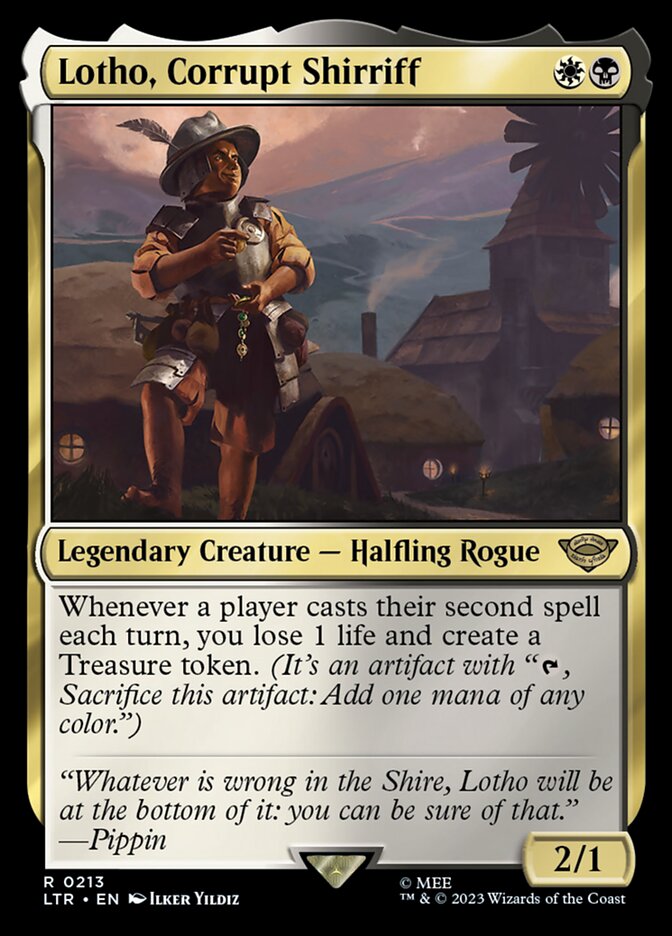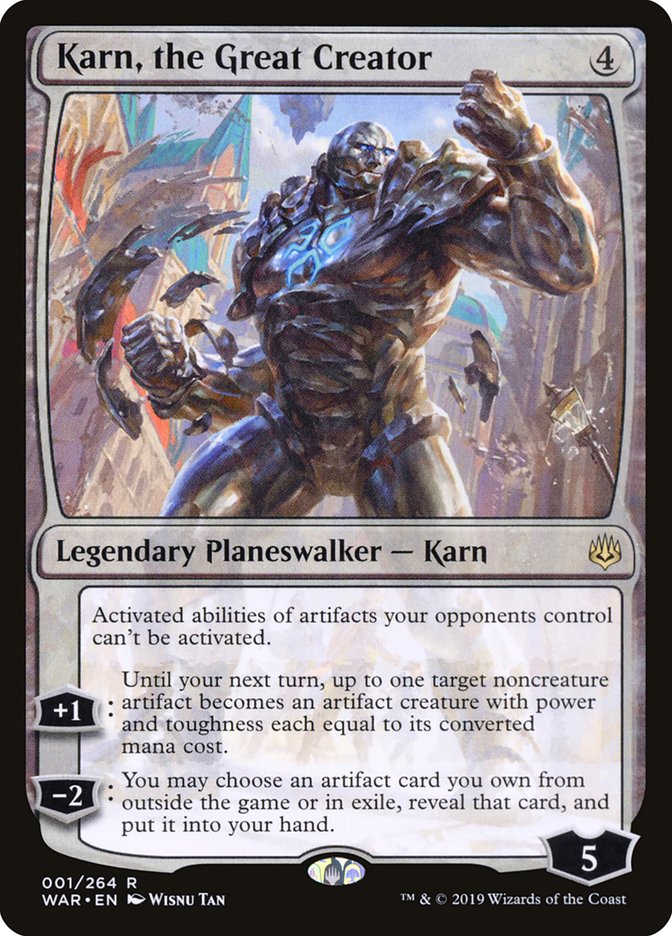Getting Cooked in Atlanta: Lessons Learned from The Cookout
I spent this weekend battling in Eminence Gaming’s The Cookout, a 160 player cEDH event in Atlanta. Despite having played plenty of tournaments in other formats, this was my first cEDH tournament with real stakes. Today I want to give you practical advice from the perspective of a competitive player with lots of experience in 60 card constructed formats, but limited experience in cEDH tournament play.
Choose a Deck That Can Win the Event
I had been playing Winota, Joiner of Forces in cEDH for the last year or so. I’m very familiar with the deck, its lines, mulligan decisions, and so forth. Winota has roughly a 7% conversion rate to a Top 16 finish. To give you perspective on this number, top decks in the format have a conversion rate of 20% or so according to EDHTop16. If I want to maximize my chances to win an event, I probably shouldn’t be playing Winota, despite my experience with the deck. I should switch decks. So I did. I spent the last three weeks or so learning Tivit, Seller of Secrets. Tivit has roughly a 26% conversion rate, and after playing Tivit for that time, I’m pretty confident that I won’t end up back on Winota.

Something I see very frequently in Magic discussions about tournament deck selection discussions is “play what you know.” While that’s great generic advice, it does have limitations. Format and deck knowledge can take you very far, but if you have the time to “put in the work” with a new deck that is much stronger, you’ll often be rewarded for switching decks. It’s very easy to get emotionally attached to a deck if you spend ages playing it. If your results aren’t matching the effort you are putting into the format, take a good look at your deck choice and ask some tough questions.
Here’s a quick anecdote to illustrate the point: I played a game of cEDH with an Ashaya, Soul of the Wild player while I was waiting to check into my hotel room this weekend. They made no meaningful decisions all game and did not impact the game at all. After the game, they stated that they probably should have mulliganed the hand. While that might be true, I responded by suggesting that they lost the game when they put Ashaya on the table as their Commander. That’s not a fun thing to hear. It’s the sort of thing that will make you swallow hard and maybe get a little mad. Sometimes it is the thing you need to hear though. I started my cEDH journey with Marwyn, the Nurturer, another underpowered mono-green commander. I’ve been there. I made that mistake. Marwyn and Ashaya both have a 0% conversion rate. Make sure you’re showing up to the event with a deck that can win in your hands.
Test against Different Types and Calibers of Players
I spent two weeks jamming hours of cEDH games with some of the best players in the format. I had highly cultivated pods with largely players with tournament pedigrees to their names. I felt incredibly good about my tournament prep, mulligan decisions, and play patterns. I was probably winning 40-50% of my games in high caliber pods. I won 3 of my 4 on-stream games on Wednesday night prior to the event. My mistake was that I didn’t take the time to test against “bad players.” Okay, I know that sounds bad and incredibly elitist, but hear me out before you go to Twitter (or whatever it’s called these days) to cancel me.
An Ob-Nixilis, Captive Kingpin player cast Final Fortune early in a game where they were roughly 0% to win. All three blue players looked at them, said “Resolves!” and watched them die without casting another relevant spell. Well, guess what? My Tivit / Time Sieve infinite is no longer a deterministic infinite combo! My Rhystic Study, Esper Sentinel, and Mystic Remora that thrive on multiple players are now significantly weaker. Players intentionally killing themselves absolutely did not come up in my testing.

I watched a player repeatedly make decisions like trying to destroy the indestructible The One Ring. I would explain that there were better targets, and they responded “No, that’s fine. I did it.” This same player also chose not to stop an infinite combo when they had the chance. This player was not at the event to win the event. I didn’t test against players who weren’t taking the games seriously. I should have.
When you have “dead players” in your pod, it drastically changes how interaction is used and valued. My counterspells and interaction were much more heavily taxed in this event than in my testing sessions, as many of my opponents weren’t playing “responsible” tournament-caliber Magic. I didn’t test in this environment, and that was probably my downfall.
Many of you may be in a similar, but opposite situation. You’ve played against your local players, but you haven’t played against the tournament spikes. If you have the opportunity to get involved with a higher caliber testing group (and you might have to make that opportunity for yourself!), I highly recommend you do so, even if just for a few games. Don’t leave holes in your tournament prep because you ended up in the same “echo chamber” of people who only give you one perspective. cEDH content creators are often looking for guests; don’t be afraid to shoot your shot!
Be Aware of Your Hand
In 1-on-1 Magic, you almost never have to worry about your opponent seeing your hand. Your opponent is across the table from you. In EDH though, it’s very easy to not realize that you are “bleeding” your hand to the opponent next to you. Think about your posture and the angle you are holding your cards at relative to your opponent. I mention this, because three of my opponents this weekend showed me every card in their hand all weekend without realizing it. This includes a player who used Necropotence to draw 31 cards; I knew exactly which counterspells they had in hand, allowing me to pick the perfect interaction point to leave them dead to the creatures on board. After the game, I told the players. Each one had the same look of horror, and then gave me a fist bump and appreciated the tip. I often tilt my chair a bit diagonally to the pod so I don’t accidentally bleed information.

Understand Basic Policy
If you are new to competitive play, the single most important thing you need to do is understand basic competitive rules enforcement. There are documents like the Magic Tournament Rules (MTR) and Infractions Procedures Guidelines (IPG) that detail what you need to know. Note that the way interactions are handled in competitive tournaments is actively different from your casual events at your local store, as those events use a different document known as the JAR (Judging at Regular). Practically this is most important in regards to missed triggers, which brings to my last point.
Don’t Help Your Opponents Win
In a four person game of Magic, you have three opponents. You also have three allies. Don’t help your opponents unless it also helps you. I watched SO MANY players actively help their opponents by pointing out triggers or interactions to their opponents that they would have missed. Don’t do this unless it actively helps you. In one round, two of my opponents had Lotho, Corrupt Shirriff in play. Between the two of them, they probably missed about ten triggers. I absolutely did not want my opponents to have more mana. Accordingly, I didn’t point out their triggers. A few turns later when life totals were lower and I controlled a Karn, the Great Creator, you bet I pointed out every single one!


Conclusion
Despite my testing going very well for The Cookout, my actual event results were mediocre. I’m not bothered by that. I’m happy with my play and decisions. I learned from the event, and I have plenty of things to think about before my next event later this month. Hopefully some of my experiences and advice here is useful for you all! As a closing thought, I would encourage you to treat every game as a learning opportunity. Even if you’re the best player in a pod from a technical standpoint and you might not learn anything new about strategy or tactics in a game, you can still learn quite a bit about human psychology by really paying attention to what’s happening in a game and how people are reacting.




Comment
Join the conversation